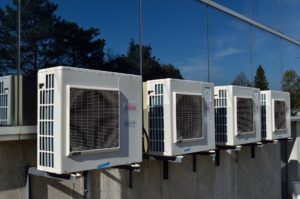 President Donald Trump’s decision to enact steel tariffs on the importing of foreign steel and aluminum has a number of HVAC industry groups worried. Many fear the HVACR industry will be negatively impacted by an increase in tariffs, as would the consumers that rely on the products.
President Donald Trump’s decision to enact steel tariffs on the importing of foreign steel and aluminum has a number of HVAC industry groups worried. Many fear the HVACR industry will be negatively impacted by an increase in tariffs, as would the consumers that rely on the products.
The metals from countries other than Mexico and Canada will carry new taxes of 25 percent on steel and 10 percent on aluminum. The president said the taxes will strengthen an industry that has been battered by unfair international competition, especially from China. President Trump has exempt Mexico and Canada for now, but that could change unless a “new and fair” North American Free Trade Agreement is signed.
ACCA’s director of industry and external relations, Todd Washam, said the organization is unsure how much prices will inflate across the board but is certain that contractors will see an increase on equipment prices.
“That increase is likely to be passed on to consumers, and we’re concerned because, when consumers see higher prices, our members tell us that they’re usually driven to the lowest bidder,” he said. “And our members are always concerned about that.”
Paul T. Stalknecht, ACCA president and CEO added, “ACCA is concerned that increased costs of HVACR equipment caused by tariffs on steel and aluminum will negatively impact professional contractors and consumers. When the price of HVACR equipment increases, consumers who are in need of a new system trend toward cut-rate and unqualified individuals to service or replace their equipment. It also shifts the mindset of consumers to opt for putting Band-Aids on aging systems instead of replacing them with today’s more efficient products.”
Another concern, according to a survey of HARDI members conducted by HARDI’s Sheet Metal & Air Handling Committee, is that the current overall domestic production capacity of steel and aluminum HVACR products cannot alone meet the current demand of the domestic market.
The survey reveals that the American steel and aluminum industries cannot currently make certain materials, such as the low-gauge foil required to make foil-scrim-kraft (FSK) facings, that are used on essential duct board, duct wrap, and other duct-insulating products.
“As major users of steel and aluminum, we have been proactive in explaining to the administration that the HVACR and water heating industry would be negatively impacted by an increase in tariffs, as would the consumers that rely on the products we manufacture,” said AHRI President and CEO Stephen Yurek. “While we have been pleased with the Trump administration’s enthusiastic support for manufacturing, and are happy that the president did include at least a temporary exemption for supplies from Canada and Mexico, we believe this step to be injurious, rather than helpful, to our efforts to increase American manufacturing and create jobs.”
On April 3, The Office of the United States Trade Representative (USTR) announced a proposed list of Chinese imports that could be subject to an additional 25 percent tariff once the list becomes final. The list, which includes various HVACR and water heating products, covers approximately 1,300 tariff lines — approximately $50 billion worth of goods —according to the USTR.
The Air Conditioning, Heating and Refrigeration Institute (AHRI) provided a list of AHRI member HVACR products that could be hit with extra 25 percent tariffs. Included in the list: boilers, compressors, air conditioners, furnaces, refrigerators, freezers, water heaters, heat exchangers, and control equipment. For the full list of member products affected DOWNLOAD HERE.
Comments on the list are due to the USTR by May 11, 2018. No dates were provided in the announcement for when the product list would be finalized, or when the tariffs would go into effect.
FIELDBOSS is a member of HRAI and IHACI and a proud supporter of the HVACR industry.
Contact us to find out how our software can help you contend with industry challenges.
#HVACRTariffsSteelandaluminumtariff